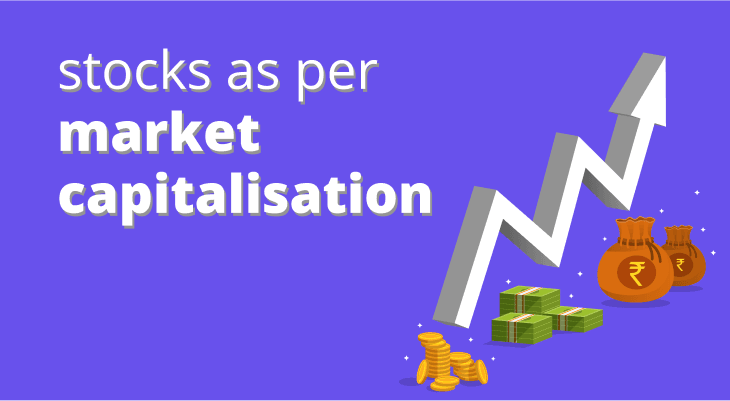
Emerging Market Funds - Meaning, Risks & Returns
The world consists of several countries with economies that are making the gradual transition from a pre-industrial and low-income status to contemporary and modern economic positions with high standards of living. As such developing countries grow, intending to achieve the status of developed economies, they become increasingly engaged with international markets and trade. To grasp the concept of emerging market funds, you must understand what emerging markets or economies are in the first place.
You could say that these countries possess some key features of developed economies, yet are at the stage where they have not achieved the status of a fully developed country. From an investment standpoint, investors may see such markets as positive prospects and this is where emerging market funds enter the picture. Emerging market funds present a potentially attractive investment opportunity, but the first step in allocating your capital to these is to know about the said fund’s meaning, features, returns, and risks, crucial aspects for investors.
What are emerging market funds?
Lying within the broader category of mutual funds, emerging market funds are kinds of mutual funds. They invest their capital in the company stock or securities of firms in emerging economies or markets. Besides mutual funds, ETFs or exchange-traded funds can also invest in emerging markets. Countries that are characterised as emerging economies or markets are typically marked by swift growth, rapid industrial expansion, and constantly developing financial markets.
Examples of some key emerging markets are those of China, Russia, Brazil, and India. These are the largest emerging economies in the world. They have the ability to yield potentially robust growth, but simultaneously come with high levels of risk. Nonetheless, investing in an emerging market fund gives your portfolio a degree of diversification, mitigating risk through a stock spread of various companies in many different sectors and markets.
How do emerging market funds work?
The tendency of emerging market funds is to invest in equities of firms that operate in emerging economies all over the globe. A feature of an emerging market mutual fund is to disperse investments over a variety of countries, industries, and company sizes. To explain by example, if 25% of a given fund is allocated to an emerging economy like China, the fund will likely invest in the banking, petroleum, and power sectors, concentrating on medium-sized businesses. Such diversification aids investors in limiting the risks and controlling investments while harnessing the economy’s potential for growth.
The objective of any particular emerging market fund is to leverage opportunities for growth in developing countries. Emerging markets give investors the chance to be part of the growth story of companies that potentially show positive prospects. Emerging market mutual funds provide investors with an array of options as instruments of debt and equity may be invested in. With the major aim of funds offering portfolio diversification, investors may select active or passive funds to access exposure to emerging economies spread over a range of segments of the market.
Key Factors to Consider Before Investing in Emerging Market Funds in India
Now that you know the answer to the question, “What are emerging market funds?”, you can focus on key considerations before you dive in. Here are some relevant points to ponder before investing:
Returns
Emerging markets give you myriad growth prospects via the funds you invest in. With some amount of research and assessment of funds you are considering, you can find out which funds are likely to potentially yield positive gains, based on the country, company, and industries available through fund investment.
Risks Involved
Idealistic as they may sound, emerging markets being your passage to play a role in an economy’s growth trajectory, these markets involve some risks. The potential risks associated with emerging markets are mentioned below:
Political Risk: As emerging market mutual funds are related to the economies of different countries, any potential political event may influence the performance of a fund. For instance, political uncertainty, or shifts in the policies of governments, particularly related to the economy, may negatively impact the performance of funds.
Inflation Risk: As with any economy, emerging markets may face the brunt of high rates of inflation, affecting your investment adversely. The value of your investment may fall in such an inflationary atmosphere.
Liquidity Risk: Depending on the emerging market funds you opt for, based on the companies and industries that funds comprise, some securities may potentially possess low liquidity. This means that they may be difficult to sell in times when you wish to exit the units in the fund, such as when you need emergency cash. Therefore, you may consider this while investing, if you believe you may have an impending financial emergency.
Currency Risk: Currency exchange rates are prone to fluctuations, and since emerging market mutual funds are associated with various global economies, these may affect a given fund’s performance. For example, when the value of currency decreases in a particular country, your fund units may witness a drop in value too.
Institutional Risk: Some emerging markets may lack strong and resilient frameworks that stipulate regulations and compliance laws. Furthermore, institutional infrastructure may be lacking in these economies. These factors may impact the performance of funds in a potentially negative manner.
Fund Expense Ratio
Similar to any mutual funds, emerging market funds come with an expense ratio. This is a variable that investors are required to consider before investing in any fund since it can be on the high side and eat into any profits. Essentially, the expense ratio is an administrative fee, taken as a percentage of the fund value, and charged to investors for management of the mutual fund. Consequently, funds with low expense ratios tend to indicate higher gains for investors.
Taxation on Fund Investment
Any gains you make in mutual fund investment are liable for taxation. When you invest in emerging market funds, you must incur a capital gains tax. The tax levied is based on the length of time you hold mutual fund units, that is, the period starting from when you purchase fund units to when you sell your fund units. Depending on your holding duration, any gains you make from mutual funds is subject to short-term capital gains tax or long-term capital gains tax. Here is a further explanation of the kinds of taxation applicable to mutual fund investment returns:
Long-Term Capital Gains Tax: This kind of tax is applicable to any units of emerging market funds, and returns yielded by them, if units are held for over 1 year. Furthermore, returns made up to the first ₹1 lac are free from any tax liability. Any returns generated over ₹1 lac are taxed at 10% without the benefit of indexation.
Short-Term Capital Gains Tax: This tax applies to any gains made from investment in an emerging market fund held for up to 1 year. A short-term capital gains tax is applicable here, and this translates to a tax rate of 15%.
Who should consider investing in emerging market funds?
Emerging markets are the buzzword in the investment world today. They may be a potentially positive investment match for investors who have a high-risk profile, looking for robust growth prospects. Given this, young investors with a steady income and a higher risk tolerance level may benefit. These kinds of investors will likely have a lengthy investment horizon and may expect potential gains from emerging economies in the long run. Nonetheless, investors who attempt to seize the seemingly apparent opportunities that emerging market funds present should evaluate their financial position, investment horizon, and goals, before they invest.
Conclusion
Investment in emerging market funds tends to offer the promise of developing economies gaining strength as they gradually evolve into industrial contenders on the global financial stage. These funds may be risky for regular investors or those who want assured gains, but they may potentially be considered by dynamic investors who have youth on their side and a long investment horizon. Additionally, if you have some surplus cash, you may think of these funds to allocate your wealth to. However, you may consider such funds after careful research into funds, past performance and certain prospective metrics related to the companies and industries invested in.
FAQ
What are emerging market funds?
Emerging market funds come within the broad category of mutual funds. These mutual funds invest their capital in emerging markets, that is, countries worldwide that are classified as emerging economies or markets. Furthermore, some of these nations may be transitioning from developing to developed countries, in terms of their economies. They include nations like India, China, parts of Africa, Brazil, and others. Mutual funds that invest in emerging economies potentially offer investors a chance to partake in a country’s economic development and provide prospective growth returns.
Why should you consider an emerging market fund?
Investors who wish to possess a degree of portfolio diversification and partake in a country’s booming economic development may consider emerging market funds. Such funds can spread an investor’s exposure over a variety of sectors in a range of emerging markets, potentially mitigating any possible risks that come with only depending on developing markets.
Is there any tax liability I have to face if I make profits from emerging market funds?
Any returns you make from any mutual funds, including emerging market mutual funds may be liable for taxation, depending on the structure and holding term of the fund and your tax bracket. For instance, long-term capital gains tax is applicable on returns of more than ₹1 lac when you stay with your investment for over a year. In case your gains exceed ₹1 lac, you are liable for 10% long-term capital gains tax without indexation. If you hold your fund units for less than a year, you are liable for short-term capital gains tax (in case you make gains) at 15%.


